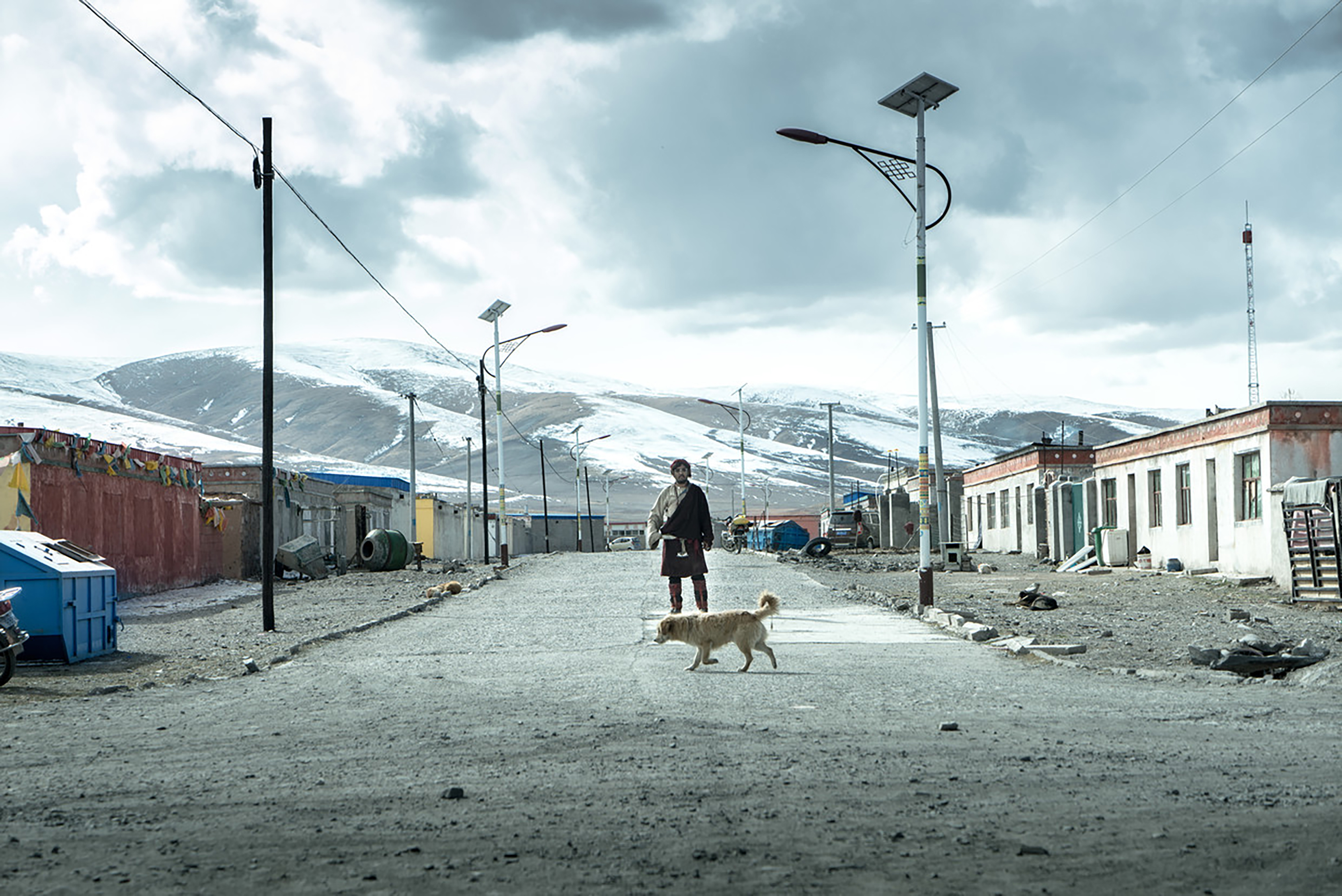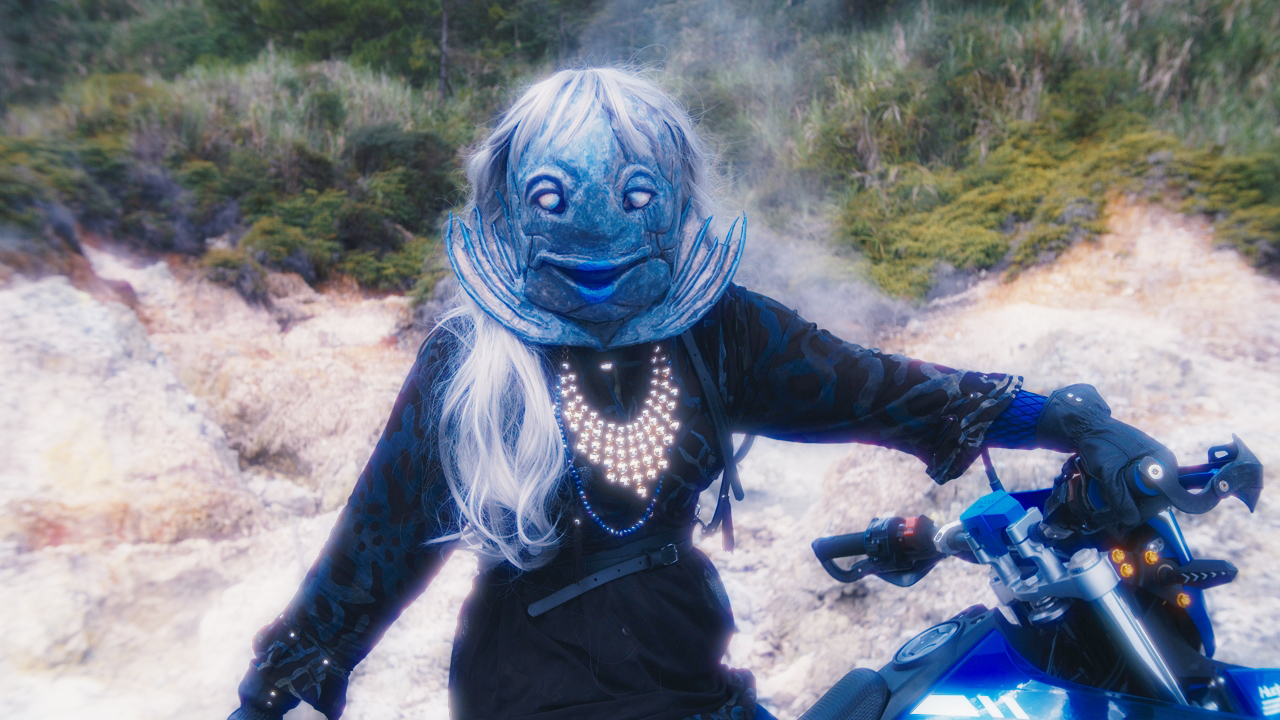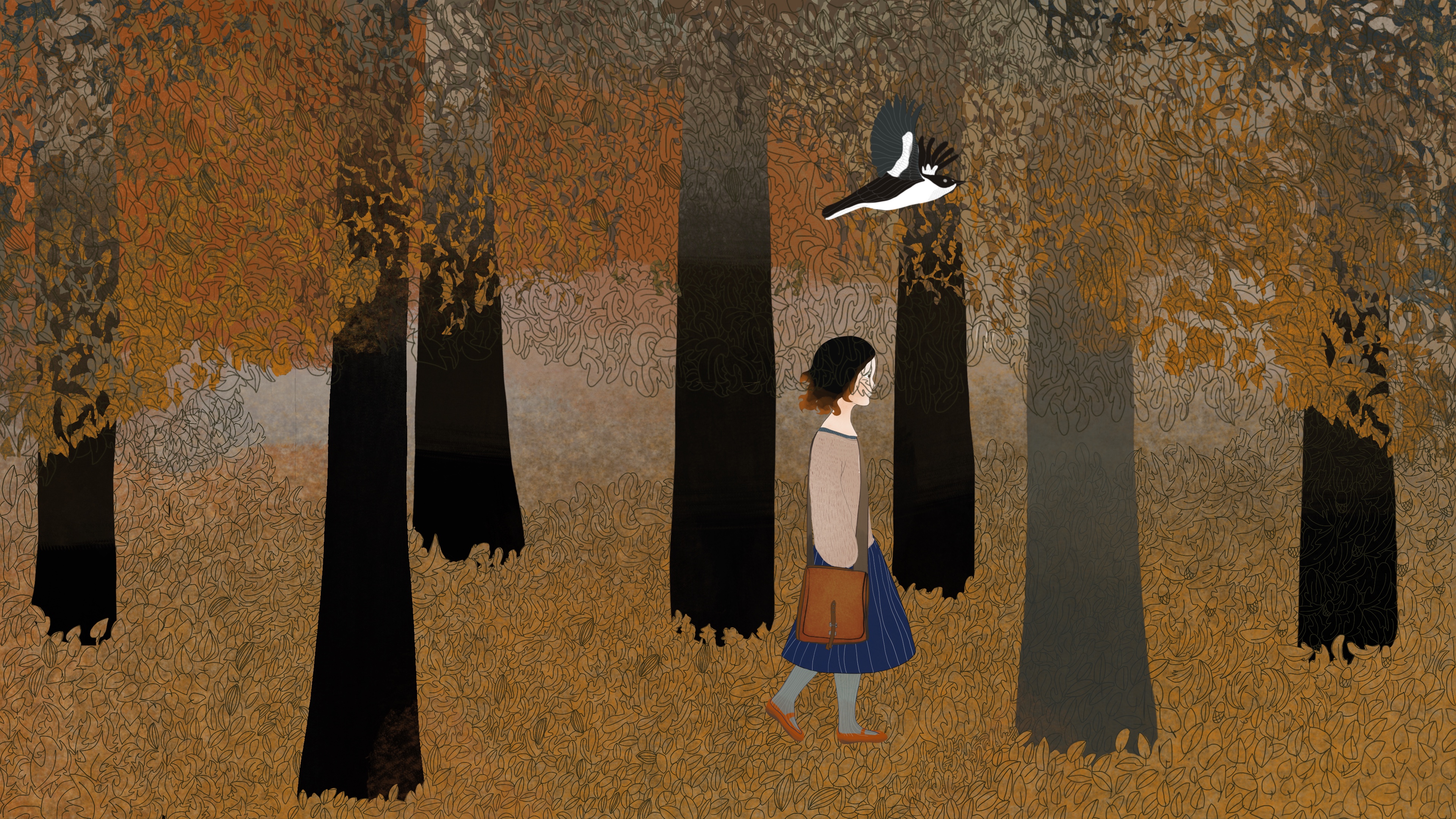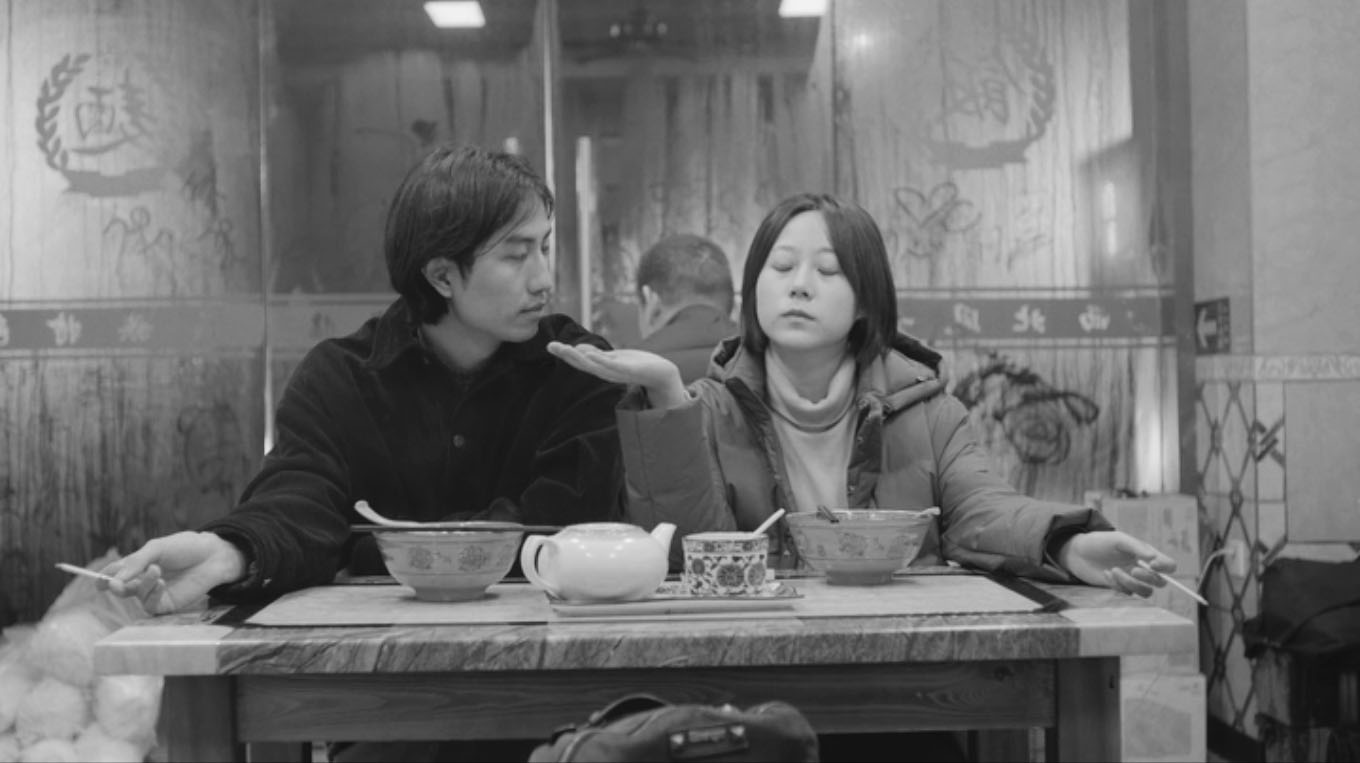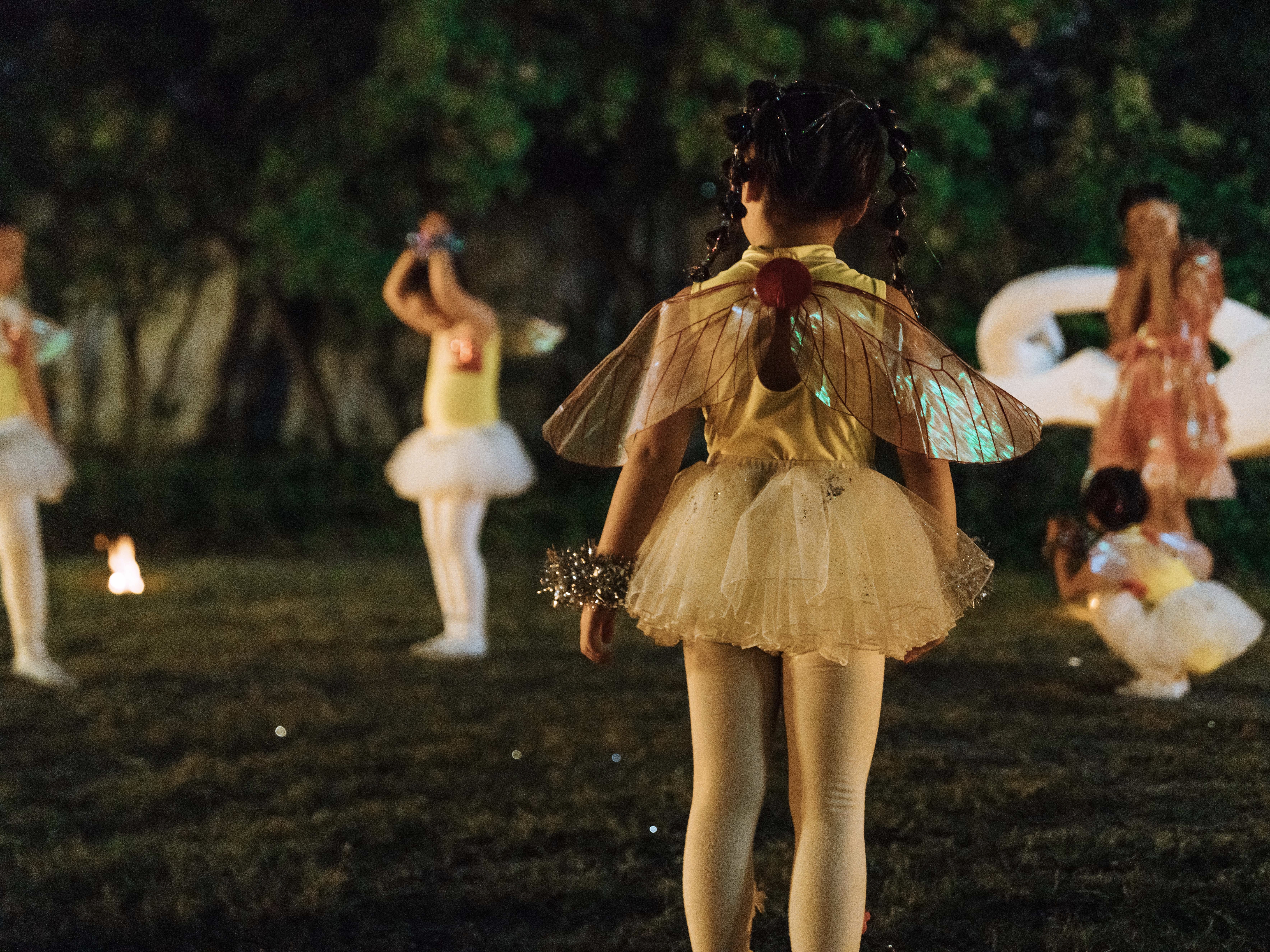Lucifer Falls from Heaven at Dawn
dir. Gabi Dao / 2023 / CA, NL / 13’/ sub EN
![]()
This film considers the bat at a unique set of intersections between ecology and economy, pestilence and good fortune, sight and sound, as well as alienation and belonging.
The beginnings of this work coincided with the advent of COVID-19, particularly in response to the viral video of Chinese influencer Wang Mengyun eating bat soup, a Paluan delicacy. The video circulated on far-right media channels, falsely proclaiming that the global pandemic began with this ingestion— the circulation of this video depicted the meal as an unpalatable, bodily exchange that consequently incited much racism, xenophobia and bigotry.
The film questions how bats, categorised as ‘uncharismatic fauna,’ might hold a mirror up to how humans treat each other across constructions of Otherness, and the conditions in which Otherness is tolerated under capital. Lucifer asks the viewers, ‘am I worthy of your
protection?
‘
Gabi Dao is an artist based in Maastricht, The Netherlands and is from the unceded and ancestral territories of the xʷməθkwəy̓əm, Skwxwú7mesh and Səl̓ílwətaʔ/Selilwitulh Nations (Vancouver, Canada). Dao’s practice culminates in collage, sculpture, sound, and moving image installations with an insistence on multiple truths, blurry temporalities, sensory affirmations, and ways of knowing otherwise. They work through long-gestating, fluid processes of gathering, breaking, and repairing from their own world-making vernacular of audio/visual fragments, tactile collections of whatnots, and scraps of linguistic detritus. Thinking with these materials, their work often begins within the slippages of “history,” archives, and storytelling toward channeling the ineffable tensions between grief and joy, alienation and belonging, dissidence and complicity, disassociation and sentimentality. From this juncture, Dao attempts to reclaim and re-enchant meaning-making from the ruins of capitalism and colonialism, especially the ways they have extracted from racialized, gendered, and more-than-human communities.
Wells of Despair
dir. Sata Taas Collective / 2023 / NL / 20’ / Sakha w/ EN subs
![]()
Wells of Despair explores the mechanisms of power that have historically and continue to undermine forms of connectedness by suppressing indigenous knowledge systems. Fueled by extractive practices, the land is warped and transformed into a commodity, erasing indigenous worlds through the extinction of traditional ways of life. Sata Taas Collective reflects on the loss of indigenous culture and knowledge systems in Siberia, as seen through the displacement of artifacts in ethnographic museums. By listening to the voices of this loss, Sata Taas traces the shadows of these displaced artifacts and seeks to understand the ruptured relationships caused by the dominant gaze of power structures.
Sata Taas Collective is a non-tangible network of narratives, memories, dreams, speculative fictions, affects, sensibilities and thoughts. The collective is a constellation of 4 Indigenous artists and cultural practitioners from the Sakha Sire and centers around the idea of revitalizing Indigenous ontologies of relationality. Unfolding in the form of temporal-spatial encounters of communal learning, healing, and worlding, sata taas seeks to nurture kinship, solidarity, and exchange among communities beyond the politics of nation-state borders.
Beast
Dir. Aileen Ye / 2022 / NL / 6’ / English
![]()
A martial arts inspired dance-fight between a lion dancer and queer performer reflecting the cultural tension between traditional and modern identities in a dreamscape nightmare.
Aileen Ye is an award-winning filmmaker and visual artist from Dublin. Her work explores contemporary subcultures, movement practices, and diasporic histories Her films have screened at BAFTA and BIFA festivals including BFI London Film Festival and Aesthetica, as well as venues like the BFI, Barbican, ICA, Michigan Theatre, LUX, and NOWNESS Asia. She holds an MSc in Sociology from Erasmus University Rotterdam, specialising in decolonial aesthetics and autoethnographic cinema.
Dream Weaver 555
Dir. Panida Te Petchara / 2024 / NL / 10’ / English, Thai + EN sub
![]()
Despite the unfamiliar surroundings during my first month in the Netherlands, I found symbolism in simple things, such as a tree wrapped in colored meshes reminiscent of superstitions from my homeland. The holy tree is believed to improve people's social status by helping them win the lottery, providing a direct path to wealth. This experience was a strong reminder that my Thai roots and cultural heritage are fundamental to my identity. It inspired me to create Dream Weaver 555, a short film that presents an enigmatic amulet offering the promise of realizing one's dreams. Through a satirical lens, the film provides insightful commentary on various aspects of Thai society, including superstition, dreams, desires, and the inequalities stemming from political and cultural issues. By delving into an imaginative world, the film portrays superstitions as a source of hope and potential for those endeavoring to enhance their lives and livelihoods.
Panida ʻTeʼ Petchara is a Thai audiovisual artist and photographer based in Rotterdam. She investigates identity, displacement, and socio-political dynamics, uncovering hidden narratives through superstition and everyday objects. Originally from Thailand, Panida holds a BFA in communication design from KMUTT and an MFA in Lens-Based Media from the Piet Zwart Institute. Her work has been showcased at international film festivals and exhibitions, including the International Film Festival Rotterdam (NL), the Limestone Coast Video Art Festival (AU), and the EYE Film Museum's research lab (NL). She has also exhibited at V2_ Lab for the Unstable Media (NL), Szczur Gallery (PL), and CTypeMag (TH).
Grounds of Coherence #1, but this is the language we met in
dir. Shen Xin 沈莘 / 2023 / CN / 12’ / Mandarin, Arabic, English w/ EN subs
![]()
Protests in regional Mandarin, words for a story in Arabic, and a couple telling myth felt in English, three languages map their movements through relations. What is heard, and what is then given meaning in these connectedness of migratory and loving nature, is paired to forms, and transmitted through possible sounds.
Shen Xin, born in Chengdu, Sichuan to its mountains, steppes, and waterways. Shen Xin lives in An t-eilean Sgitheanach (Isle of Skye) with their life partner Ali Van, and with their family in Mni Sota Makoce (Minnesota). Through those who teach, and their relations expressed in place, meaning, and sound, Shen Xin is a student of Tibetan, Arabic, and Gaelic. In states of shelter and exile, they seek the capacities of our custodial role to coevolve, conserve, and restore in learning communities. As a maker, they tell stories through moving images, painting, performance and sound. Their practice involves making embodied stories, where objects of processes such as film engage in and is part of the encoding of relations with dynamic and sentient systems in place, facilitating the reconciliation and reclaiming of received and invented technologies. Forging terms for remembrance of transgenerational markings carried and sensed in home geographies, they work with languages of returning, ritualizing imaginations, articulations and creations towards unhurt spaces of belonging. They learn and know with land-based patterns, while bearing witness to forms of governance.
The Boat, The Train, The Road
dir. Yuchen Li / 2022 / NL / 36’ / English, Mandarin w/ EN subs
![]()
“Will the ocean remember?”
A family running a noodle business, a prominent cultural ambassador in prison for ivory smuggling, and a Buddhist temple housing local orphans in Dar es Salaam. Through these three personal trajectories, artist LI Yuchen reflects on China’s evolving relation with Tanzania. “The Boat, The Train, The Road” is a journey through the lens of Li, as she traverses the Tanzanian landscape and encounters three imprints of Chinese migration with their stories spanning different decades and contexts. These personal accounts complicate the big narratives surrounding China such as an anti-colonization ally or a neo-colonial rising power. Both a meditation on the universal question of “Where do we belong?” and a personal quest to understand cultural identity, this essay film blends historical materials with Li’s intimate gaze from the present. Li stands as a witness to these encounters and relates them to her own experiences of being a woman of color in Europe, yet being perceived as white in Tanzania.
LI Yuchen’s artistic practice is a journey through migration, memory, and the reenchantment of the world. Born in the ancient city of Nanchang, China, her work is deeply influenced by the waters of the Chang Jiang River and the diasporic experiences that have shaped her life. At its core, her practice seeks to restore the relationships, magic, and knowledge systems erased by modernity, inviting us to reconnect with ancestral wisdom and the pluriverse.
The Bodhi Tree in Bosch’s Garden
Dir. Maia Liu in collaboration with Yezi Lin and the archive of Leopold Liu / 2024 / NL / 40’ / English, Mandarin w/ EN subs
![]()
‘The Bodhi Tree in Bosch’s Garden’ is a film tracing the artist’s exploration of her father’s art archive made during the ‘90s. In her attempt to grasp the meaning of his notes and works, Maia relied on the cultural mediation of her best friend Yezi. Throughout their exploration, they encounter a series of peculiar absurdities. Yezi deeply resonates with both the work and the life story of Maia’s father, whom Maia herself barely knows. This triggers a complex interplay of appropriation, projection, intimidation, and admiration among the three characters — the father’s artworks, the daughter, and the friend. Their interactions form a composition, continually shifting by their perceptions of one another and the inherent gaps that emerge. Within this dynamic, the camera plays a crucial role as a fourth character, intensifying frictions between life and art, identity, migration and its disillusionments, anarchist dreams and institutional structures.
In her work
Maia Liu explores the themes of identity and relationality. In her earlier, sculptural works she used everyday objects and the human body to examine and deconstruct the duality of 'sameness' and 'similarity'. At Piet Zwart Institute, she made her first film, investigating the psychological dimensions of duality and relationality through a practice of collaboration.
